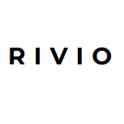Agentic AI Comparison:
Leverage AI vs Rivio
Introduction
This report compares two AI-powered tools for businesses: Rivio and Leverage AI. Both offer solutions to streamline workflows and enhance productivity, but they have distinct features and target markets.
Overview
Leverage AI
Leverage AI is a broader AI platform that aims to augment human intelligence across various business functions, with a focus on sales, marketing, and operations.
Rivio
Rivio is an AI-powered platform focused on ecommerce optimization, offering features like review management and personalization tools for online stores.
Metrics Comparison
autonomy
Leverage AI: 8
Leverage AI provides more autonomous features across multiple business functions, including automated data analysis and decision support.
Rivio: 7
Rivio offers automated review management and personalization, but still requires human oversight for strategy and implementation.
Leverage AI edges out Rivio in autonomy due to its broader scope and more advanced AI capabilities across various business processes.
ease of use
Leverage AI: 7
Leverage AI offers a clean interface, but its wider range of features may require a steeper learning curve for users to fully utilize all capabilities.
Rivio: 8
Rivio's focus on ecommerce makes it more intuitive for online retailers, with a user-friendly interface tailored to common ecommerce needs.
Rivio is slightly easier to use for its target market, while Leverage AI's broader functionality may require more time to master.
flexibility
Leverage AI: 9
Leverage AI's platform is designed to be adaptable across various industries and business functions, offering greater flexibility in application.
Rivio: 6
Rivio is highly tailored for ecommerce, which limits its flexibility for other business types or functions outside of online retail.
Leverage AI significantly outperforms Rivio in flexibility due to its broader applicability across different business sectors and functions.
cost
Leverage AI: 6
Leverage AI's pricing is not publicly available, suggesting a more enterprise-focused model that may be costlier, especially given its broader feature set.
Rivio: 7
Rivio offers competitive pricing for ecommerce businesses, with plans starting at $189/month, making it accessible for small to medium-sized online retailers.
Rivio appears to be more cost-effective for its target market, while Leverage AI's pricing model may be less accessible for smaller businesses.
popularity
Leverage AI: 7
Leverage AI's broader applicability and focus on augmenting human intelligence across various business functions likely contributes to a wider adoption rate.
Rivio: 6
Rivio has a growing presence in the ecommerce sector, but its niche focus limits its overall market penetration compared to more general AI tools.
Leverage AI seems to have a slight edge in popularity due to its wider applicability, though both tools are relatively new in the rapidly evolving AI market.
Conclusions
While both Rivio and Leverage AI offer valuable AI-powered solutions, they cater to different needs. Rivio excels in ecommerce optimization with a user-friendly interface and competitive pricing for online retailers. Leverage AI, on the other hand, provides a more flexible and autonomous solution applicable across various business functions and industries. The choice between the two would depend on the specific needs of the business, with Rivio being more suitable for focused ecommerce applications and Leverage AI offering a broader, more adaptable platform for diverse business operations.

